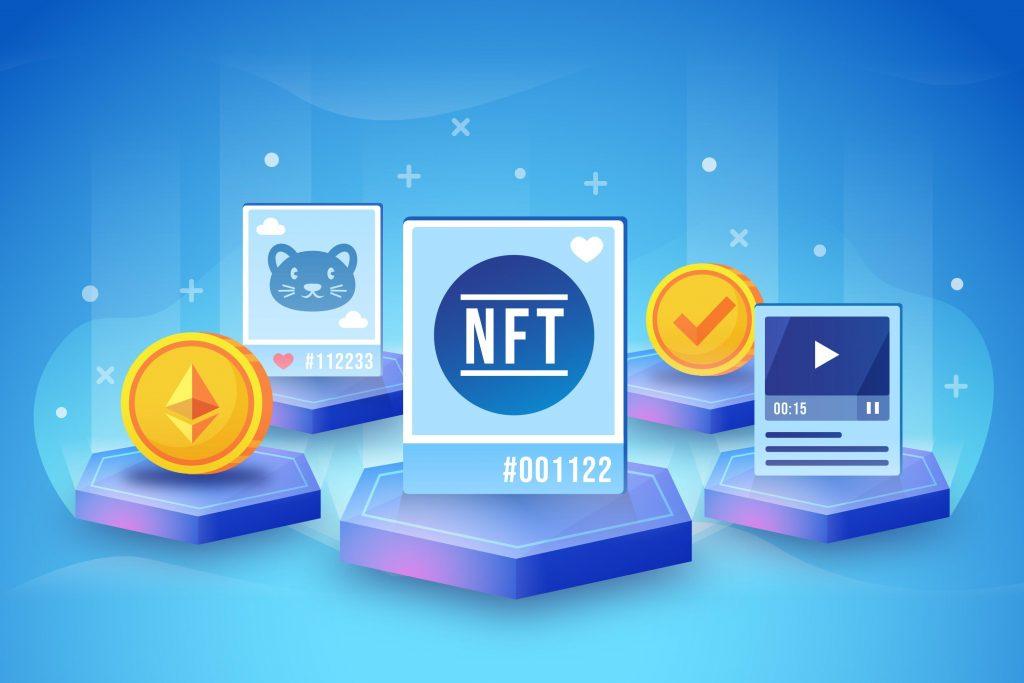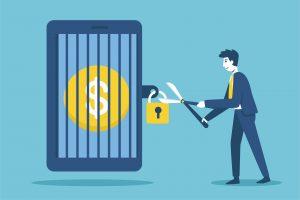Did you ever imagine that the blockchain-based trend would find its way to the real estate marketplaces, the commercial industry slowly honoring the power of NFTs and looking for opportunities?
Many real estate investors are now accepting payments for real estate assets in digital currencies like Bitcoin, making it easier to buy and sell their assets. NFT real estate titles to the property, either natural or virtual, are unique digital tokens stored on a blockchain ledger representing an asset’s ownership.
Real Estate is a rapidly evolving industry. Therefore, it is necessary to keep up with all the latest developments. As an investor, you need to be aware of the numerous new opportunities that will result from the growth of NFTs.
Real Estate NFT tokenization has taken the real estate market by storm. It can make transferring and verifying property ownership easier, cheaper, less risky, and advantageous for buyers and sellers. Let’s delve deeper and learn more about NFT Real Estate transactions.
NFTs in the Traditional Real Estate Industry
NFTs can represent real-world property ownership. Traditional, real estate assets require certain minimum investments and high management fees, with meager transaction fees. Illegal activities in the Traditional Real Estate marketplaces, such as tax evasion or money laundering, can be prevented by blockchain technology. Hence, it becomes necessary to know how to create a real estate NFT.
In the US, the new technology of Real estate NFT is rare because the well-established laws and county land record offices in the US need to recognize ownership transfers with NFTs. But the traditional real estate market will slowly adopt the new technology of transfers of ownership with NFTs.
Digital Real Estate vs. Physical Real Estate
Digital real estate includes the ownership of a URL, website, domain name, social media account, and virtual property in the Metaverse. One can invest in the digital real estate market via Parcel. The Parcel Price Index values Real Estate across the US under specific parameters and is then tied with a synthetic asset. A synthetic asset allows you to actively trade the asset without ever owning it.
Digital real estate does not have any rules and regulations as it exists in virtual spaces, often referred to as the Metaverse, where users can interact with and construct almost anything they want.
A physical real estate NFT is created by registering a real-life asset on a blockchain. Each blockchain ledger provides the history of the transaction of every asset. NFT in physical real Estate can make the transfer of assets secure and immediate. A physical real estate NFT can be tokenized as an entire asset or via fractional ownership.
How do real estate NFTs work?
The NFT houses and plots of land within an Nft real estate game are fundamentally different from when we talk about NFT real estate; some refer to physical real Estate being sold in the form of an NFT or digital real Estate inside virtual worlds known as the Metaverse.
Real Estate NFT works similarly to any other NFT. NFTs are digital tokens bought with cryptocurrency and provide security and complete ownership of any digital asset through Blockchain. Real Estate NFT only works if the ownership of Nft real estate title/contract links to the NFT in one way or another.
Is NFT Suitable for Real Estate?
NFT in real Estate refers to the digital token you can attach to a property in the real estate industry. It is stored in the Blockchain ledger. NFTs serve as an ideal instrument for selling and purchasing real estate properties. Nft real estate games like Upland and Decentraland offer virtual real estate properties. NFT is suitable for real Estate because in a blockchain network, every transaction is recorded, and there will be no disputes regarding the ownership of the property. Tokenized real estate is the way forward and the online real estate platforms are expected to join the revolution shortly.
Why Should You Learn about NFT Real Estate?
Nowadays, Real Estate NFT reduces the risk of harm due to fraud and improves the ability of an owner to prove that they own a property. Real estate NFTs promise easily traceable, secure ownership records for many real estate investments. An NFT property sale is simple as it covers the digital validation of funds and identity, and the property is transferred.
For assets and payments, cryptocurrency and NFTs can transfer without traditional intermediaries. An NFT property sale is simple as it covers the digital validation of funds and identity, and the property is transferred. Real Estate NFT will allow the purchase and sale of real Estate in virtual worlds.
Reasons to Use NFTs for Real Estate
The use of NFTs in real Estate arises from the vulnerability of digital transactions to cyber fraud. NFTs simplify the process of taking out loans on your property.
The main reasons for using NFTs in real Estate are:
- Improved security
- Data Integrity
- Transparency
- Fast delivery
- Undeniable proof of ownership
Practical Use of NFTs in Real Estate

NFTs can resolve the unwanted concerns of fraud. NFTs provide a way to bypass trusted intermediaries because blockchains can verify ownership, identify Nft real estate titles and settle transactions more efficiently.
There are two types of tokenization in the practical use of NFTs in Real Estate.
- Fractional ownership tokenization Fractional ownership real estate NFT tokenization offers a simple approach to the representation of real Estate as NFTs. It’s a Crowdfunding platform that helps investors buy shares, and owners have a specific number of tokens representing their share in the asset.
- Entire asset tokenization Entire asset tokenization requires the conversion of the actual property deed into a legal entity and the creation of a single NFT token representing ownership in that entity. Entire asset tokenization is more complicated. Therefore, fractional ownership tokenization presents a better alternative term.
Challenges for NFTs in Real Estate
There are specific challenges that NFTs in Real Estate have to overcome:
- Firstly, the hacking of smart contracts and misuse of the cryptographic key. If someone forgets or loses the key, the bitcoin is lost forever.
- Crowdfunding in NFT has the rules of the Securities and Exchange Commission and Major Securities Laws. Either the trading will be user-friendly, or the rules will change. It is another challenge that NFT Real Estate has to face.
- People are still trying to determine whether NFTs would work. Therefore, only some people accept NFTs in the market.
- Changing the mindset of title and family-owned companies in the real estate industry is tough.
- Large companies do not embrace non-fungible tokens.
How to create NFT Real Estate?
Here are the steps that you need to follow to create an NFT real estate space:
Step 1. Prepare the property by identifying the legal processes and knowing the regulations for the particular property for creating an NFT. The real estate space must be in the legal framework to be converted into a token.
Step 2. Take help from a legal counsel with knowledge of smart contracts and Blockchain to know securities need to be considered.
Step 3. The NFT adds descriptive and legal data concerning the property.
Step 4. The NFT is ready, containing all the legal paperwork, disclosures, and reports necessary to provide ownership proof. Whoever will purchase the token owns the property, depending on the type of ownership offered.
How do NFTs work in the marketplace?
Real Estate NFT Marketplace is the platform where plots of land on real-world or metaverses can be traded. It is similar to a traditional real estate marketplace in some aspects. One can invest in Fractional Ownership tokens, similar to stocks traded on the market, and get the profits according to the stake in the token. One can also sell the tokens to get money. A real estate NFT marketplace assures improved security and data integrity.
How to buy virtual Real Estate NFT?
The virtual Real Estate NFT is created from engaging environments where people can communicate with each other, as they do in the real world. People are becoming aware of the business potential of Online real Estate NFT and seeking investment and money-making opportunities in this space. One can buy virtual land in virtual worlds, and the most popular virtual land options are Decentraland and Crytovoxels.
Steps for buying virtual real Estate NFT
The virtual ownership deed effectively takes the form of blockchain code. One can perform the following actions:
- Use your computer or mobile app to browse your chosen metaverse platform, looking for a preferred digital real estate parcel.
- View market prices on your chosen platform, or research them on third-party resellers, to get a sense of comparables and general pricing.
- Open a digital wallet to hold the digital assets and the cryptocurrency to purchase virtual land parcels.
- Purchase the cryptocurrency needed to buy virtual land using pre-existing crypto holdings.
- Register for an account with your chosen virtual platform.
- Link the digital wallet with the preferred metaverse property platform, choose a parcel and begin buying.
- Receive the NFT of your metaverse real estate holding.
Conclusion
Our lives have become more digital after the COVID-19 pandemic. Gamers, collectors, investors, and companies are taking advantage of the online Real Estate market that uses NFTs for tokenized real estate transactions.
NFTs provide a secure way of transferring the ownership of real estate assets or shares in investments, online or offline. NFTs have entered every aspect of the Metaverse and the world of cryptocurrencies and the future looks bright!






